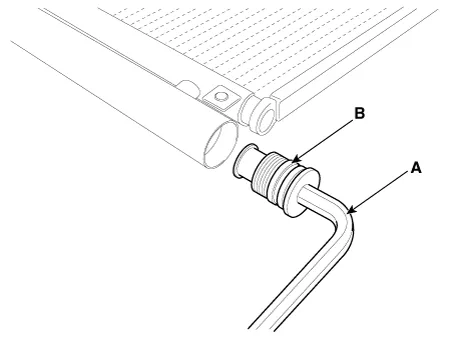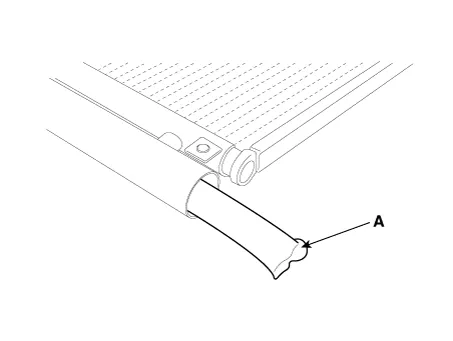Hyundai Palisade (LX2): Air conditioning System / Receiver-Drier
Repair procedures
| SReplacement |
| 1. |
Remove the condenser.
(Refer to A/C System - "Condenser")
|
| 2. |
Remove the cap (B) on the bottom of the condenser with an L wrench (A).
|
| 3. |
Remove the receiver-drier (A) from condenser using a long nose plier.
Check for crumbled receiver-drier and clogged bottom cap filter.
|
| 4. |
Install in the reverse order of removal.
|
Components and components location Components Location 1. Condensor
Description and operation Description The A/C Pressure Transducer (APT) converts the pressure value of high pressure line into voltage value after measuring it.
Other information:
Hyundai Palisade (LX2) 2020-2026 Service Manual: Description and operating principle
Description and Operation Wireless Power Charger System During ACC or IG ON, battery voltage is supplied to the wireless power charger system to transmit an output of 5 W to mobile phone. Mobile phones certified with the wireless charging standard WPC (Qi 1.
Hyundai Palisade (LX2) 2020-2026 Service Manual: Photo Sensor
Description and operation Description The photo sensor is located at the center of the defrost nozzles. The photo sensor contains a photovoltaic (sensitive to sunlight) diode. The solar radiation received by its light receiving portion, generates an electromotive force in proportion to the amount of radiation received wh
Categories
- Manuals Home
- Hyundai Palisade Owners Manual
- Hyundai Palisade Service Manual
- Lift and Support Points
- Convenient Features of Your Vehicle
- Body Electrical System
- New on site
- Most important about car



